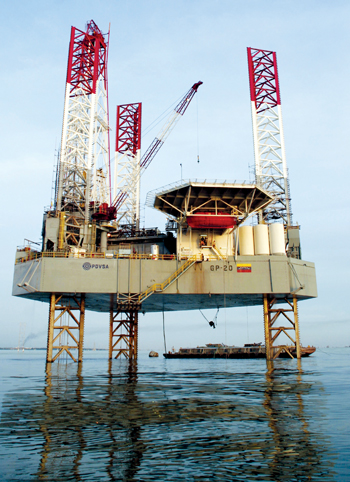
 PDVSA ... burdened with debt
PDVSA ... burdened with debt
Venezuela, struggling to pay for essential items such as food and medicine amid strict foreign currency controls, may have failed to collect about a third of its potential oil revenue in 2014, a Reuters analysis suggests.
The Opec member nation likely realised just over $50 billion in oil revenue in 2014, according to an analysis of publicly available data and estimates based upon past performances of Venezuela’s oil sector.
But as a result of generous financing mechanisms to allied nations through cooperation agreements and imports of crude oil and various products, Venezuela potentially deprived itself of about $24 billion in oil revenue last year, the analysis suggests.
An exact figure for both realised and deprived revenues is unavailable given the absence of specific data from Venezuela’s state-owned oil company, Petroleos de Venezuela (PDVSA), and the government.
Accompanying this story is an interactive calculator allowing users to input their own estimates for some of these unknown elements. The fact that the country holds the world’s largest proven crude reserves has generally persuaded investors that it can afford to service its debts, in spite of Caracas’ rhetoric lambasting capitalist imperialism.
That confidence is eroding amid the collapse in oil prices and the crumbling of the state-led economic model, resulting in prices on sovereign and quasi-sovereign US dollar-denominated debt dropping to levels typically associated with a default.
Analysts have found it increasingly difficult to square how PDVSA will bring in enough revenue to meet its obligations, given its underinvestment in production operations that jeopardise oil output.
Venezuela’s practice of subsidising the cost of gasoline for domestic consumption for less than it costs to produce, as well as agreements to ship oil under barter pacts to Cuba or relaxed credits to other Caribbean nations, hurts the flow of revenue to the government.
China has loaned Venezuela more than $50 billion since 2007, to be repaid with crude oil and product shipments. Nearly half of that amount has been paid off, including about $14.5 billion worth of oil last year, according to the Reuters analysis.


































































